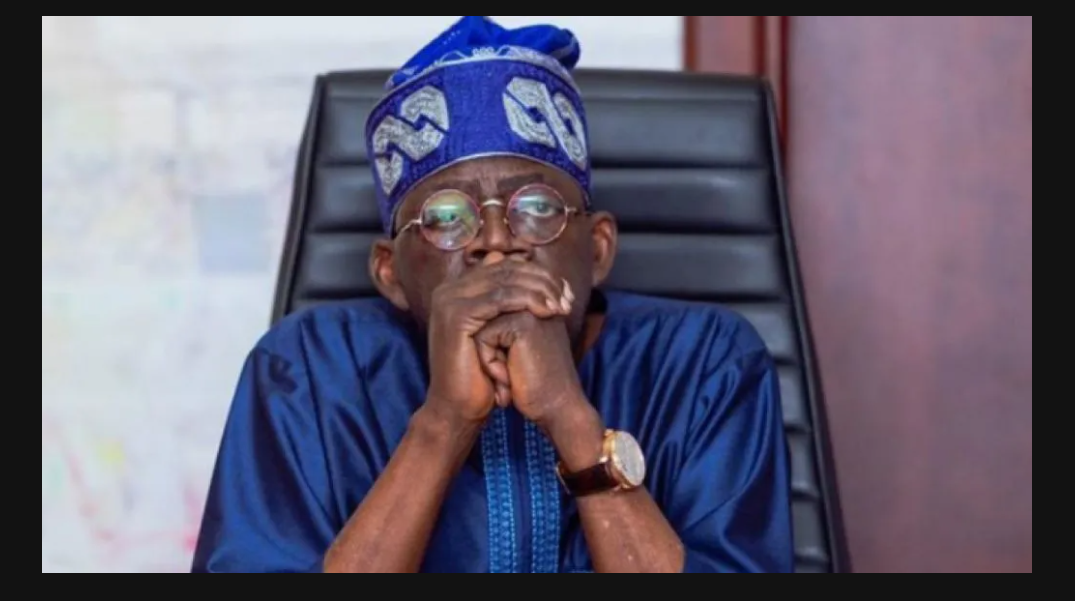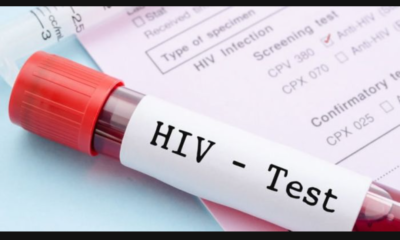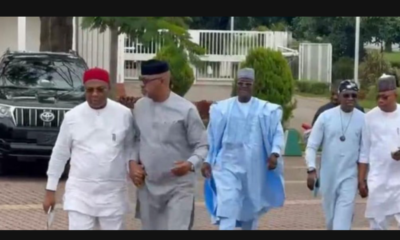Economy
Tinubu’s subsidy removal and Naira unification leave 104 million Nigerians in poverty
The economic reforms of President Bola Ahmed Tinubu have now left no fewer than 104 million Nigerians in poverty line.

This was contained in the World Bank Nigeria Development Update, NDP, report released in Abuja on Wednesday
The World Bank report specially noted that petrol subsidy removal and foreign exchange rates unification created intense cost of living pressures. This, it said, pushed more Nigerians into poverty.
The world financial institution, however, praised the Federal Government for what it considered “bold reforms”. It said they were necessary to rescue Nigeria from fiscal cliff, describing the current pains as temporary.
“Sluggish growth and rising inflation have increased poverty from 40 percent in 2018 to 46 percent in 2023, pushing an additional 24 million people below the national poverty line,” the report said.
It said the number of poor rose from 79 million in 2018 to 104 million in 2023, with urban poor—more exposed to inflation—increasing from 13 to 20 million. Meanwhile, poor people in rural areas increased from 67 to 84 million.
“In the medium term, the recent reforms will reverse this trend through higher growth and lower inflation, but to a limited extent, with poverty rates decreasing from 46 per cent in 2024 to 44 per cent in 2026,” it added.
According to the international organisation, reforms are expected to undo the increases in poverty seen in recent years from 2024 onward, albeit only marginally and slowly.
But his actions have worsened inflation in double-digits and at the highest level in 18 years. The rising inflationary pressures have weakened the purchasing power of consumers, even as businesses grapple with higher operating costs.
The removal of the petrol subsidy tripled the petrol price to N617 from N184, causing public transportation providers such as buses, tricycles and motorcycles to raise transportation fares.
The naira has plunged to record lows across markets since the central bank allowed it to weaken by as much as 40 percent against the dollar in June.
According to the NBS, the country’s inflation rate, a measure of the general price level, rose to 27.33 percent in October from 26.72 percent in the previous month.
Nigeria’s inflation has increased in 2023 and reached an almost two-decade high, according to the authors of the World Bank report.
“Inflation has historically been high and persistent in Nigeria—in 13 out of the past 15 years, inflation was higher than 9 percent, the ceiling of the CBN’s target range—reflecting the combination of loose fiscal and monetary policies, structural supply constraints, and external shocks,” they said.
Meanwhile, the World Bank called on the Nigerian National Petroleum Company Limited, NNPCL to make public its statement of accounts and transparently disclose its revenue inflows.
The bank said; “Publish detailed financial statements and revenue flows of NPPC to safeguard the fiscal savings from the subsidy reform and ensure that oil revenues flow to the Federation (Account).”
In his remarks, Shubham Chaudhuri, World Bank Country Director for Nigeria, said that between N300 billion and N400 billion was expended on fuel subsidy monthly.
He added that the expectation was that the NNPCL should have been paying such amount to the Federation Account. He said such had not been the case.
He added: “The petrol subsidy and forex management reforms are critical steps in the right direction towards improving Nigeria’s economic outlook.
“Now is the time to truly turn the corner by ensuring coordinated fiscal and monetary policy actions in the short to medium term.”
Follow us on social media:-

 Celebrity Gossip & Gist2 days ago
Celebrity Gossip & Gist2 days ago“When you talk finish, you hug transformer” – Yul Edochie tells Judy Austin’s ex-husband over his allegation
-

 Health2 days ago
Health2 days ago‘Stunning’ – Experts react to new twice-yearly injection that offers 100% protection against HIV/AIDS
-

 News2 days ago
News2 days ago“9ja to the Universe” – Oyinbo people raise eyebrows as they dance to viral ‘Gwo gwo gwo ngwo’ challenge (Video)
-

 News1 day ago
News1 day agoTinubu meets APC governors as nationwide protest against hardship looms (Video)








